Public opinion of the Supreme Court has improved in the wake of the Hobby Lobby decision, particularly among independents
Last week’s controversial Supreme Court Hobby Lobby decision, which allowed certain “closely-held” corporations to claim a religious exemption from some laws, appears to have helped the image of the Supreme Court – at least with some segments of the public. In the latest Economist/YouGov Poll, Americans are closely divided in how they view the Court, but there has been a slight improvement in the last week.
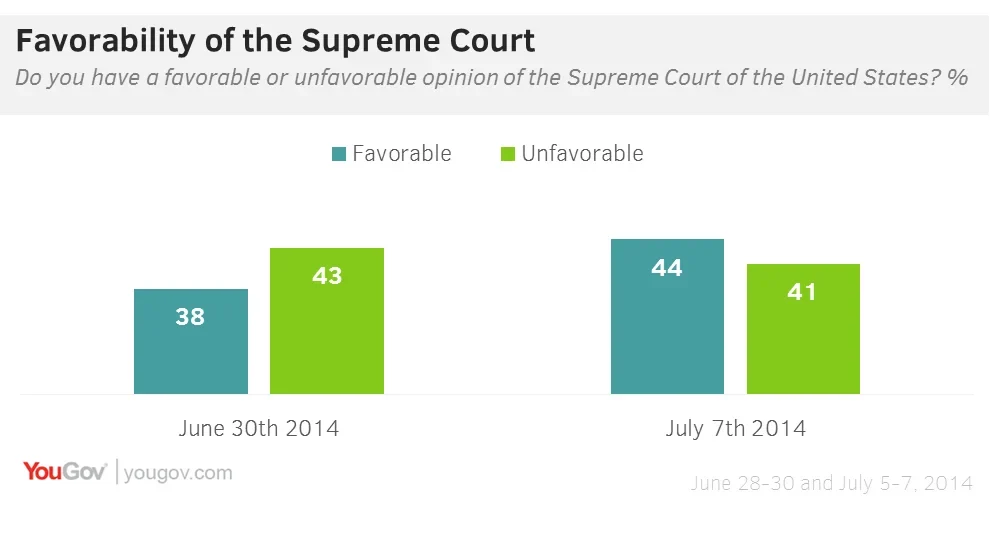
Although the Hobby Lobby decision was unpopular with Democrats, whose image of the Court shifted from mixed to negative after the ruling, Republicans (who were more positive about the Court to begin with) became even more positive. Favorable ratings of the Supreme Court jumped six points among Republicans, while unfavorable views rose seven points among Democrats.
But the greatest change in perception of the Supreme Court came from independents. Last week, independents were more unfavorable than favorable, this week, a majority of independents are favorable.
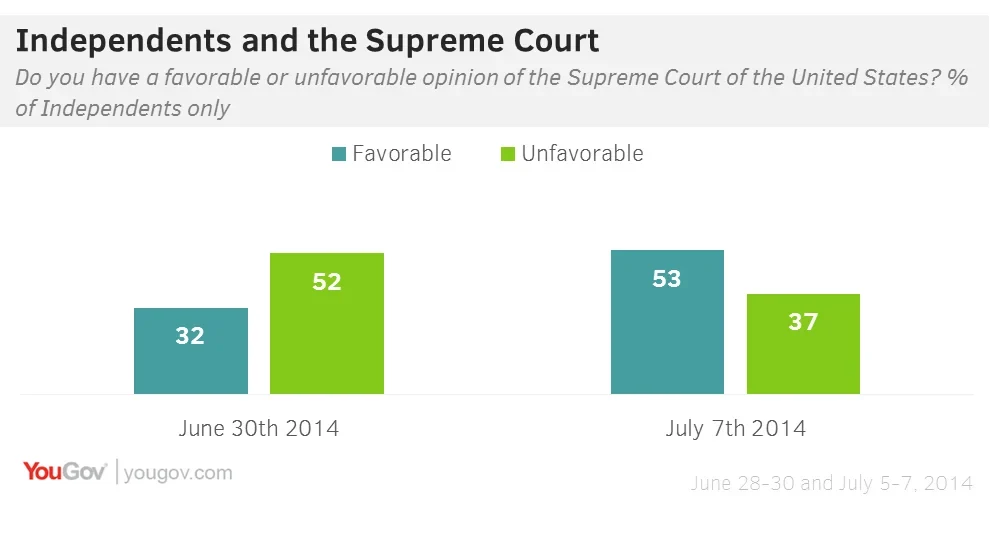
Opinions about the Hobby Lobby decision divide along party lines, with majorities of Republicans and Democrats on opposite sides of the case: 63% of Democrats oppose the ruling, while 80% of Republicans support it. A majority of independents also support the decision.
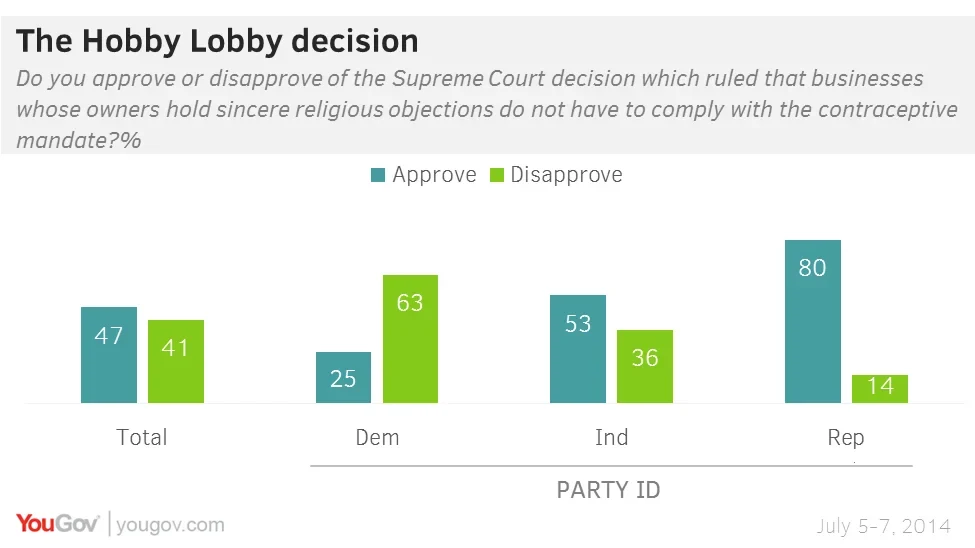
There are some other demographic differences: Men support the Hobby Lobby decision 51% to 36%; while women are more closely divided. 43% of women support the decision; 46% do not.
By far the best-known justices are conservative Clarence Thomas and liberal Ruth Bader Ginsberg. Only about one in four admit they did not know Thomas or Ginsberg were on the Court. That percentage increases to about a third for most of the other Justices. The least well-known is Steven Breyer. Just about half the public admitted they did not even know he was on the Supreme Court.
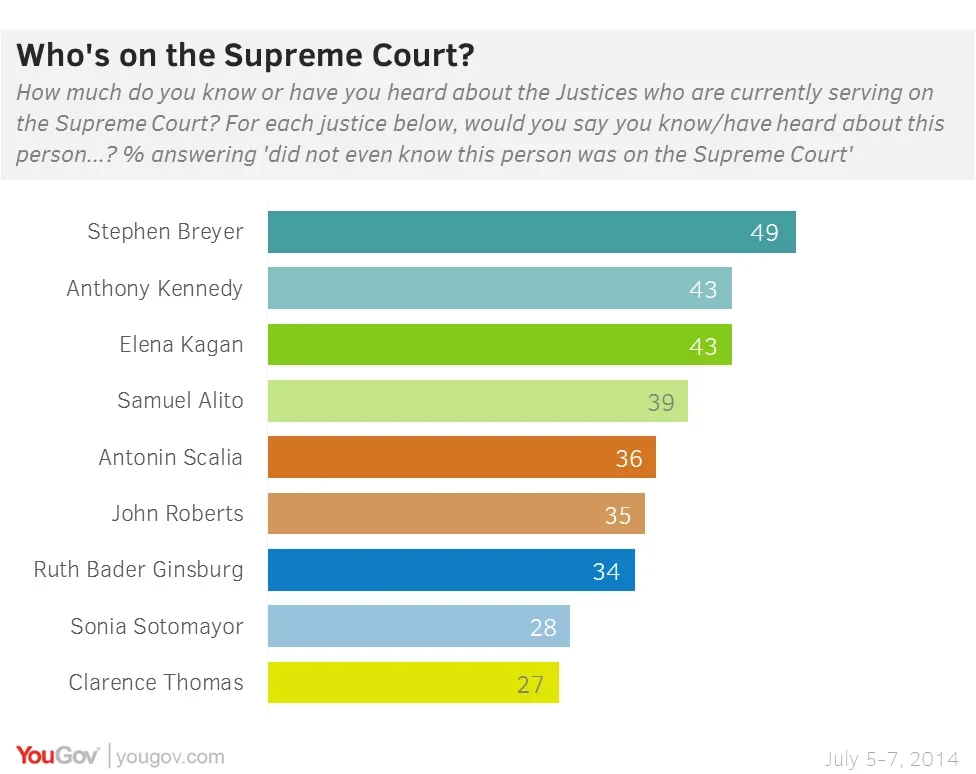
But those who know each of the Justices like them. Just about six in ten of those who know a Justice say they have a favorable view of them. Even the least popular Justices, Clarence Thomas and Elena Kagan, are viewed favorably by majorities of those who know them. Differences are ideological: Democrats have overwhelmingly favorable views towards the four liberal Justices -- Ginsberg, Kagan, Sotomayor and Breyer; Republicans are overwhelmingly positive about four conservatives Justices – Scalia, Thomas, Roberts and Alito.
Anthony Kennedy, who often provides the deciding vote on critical cases, is the only Justice who gets positive assessments from both Democrats and Republicans.
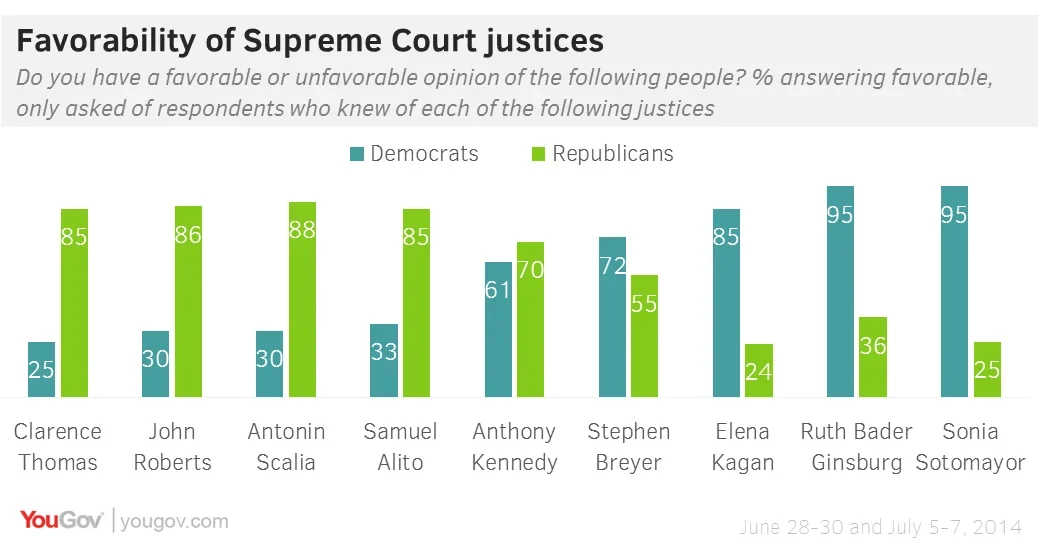
Americans tend to make decisions about Supreme Court Justices based on the decisions they make. For a brief period after he cast the deciding vote to uphold the Affordable Care Act, Democrats thought more highly of John Roberts than Republicans did. That is no longer the case. Republicans like Roberts much more than Democrats do.
Women have a much better assessment than men do of one of the women on the Court. 52% of men have a favorable view of Sonia Sotomayor; 67% of women do. Women are slightly more positive than men are about Ruth Bader Ginsberg, and there are few gender differences when it comes to the third female Justice, Elena Kagan.
Sotomayor also gets overwhelmingly favorable assessments from Hispanics: 75% of them are favorable towards Sotomayor. That positive rating doesn’t happen when African-Americans are asked to evaluate Clarence Thomas, the only black on the Supreme Court. Twice as many blacks have an unfavorable view of him than are favorable towards him.
Image: Getty
Full results can be found here.
Economist/YouGov poll archives can be found here.








